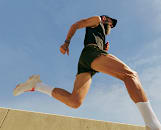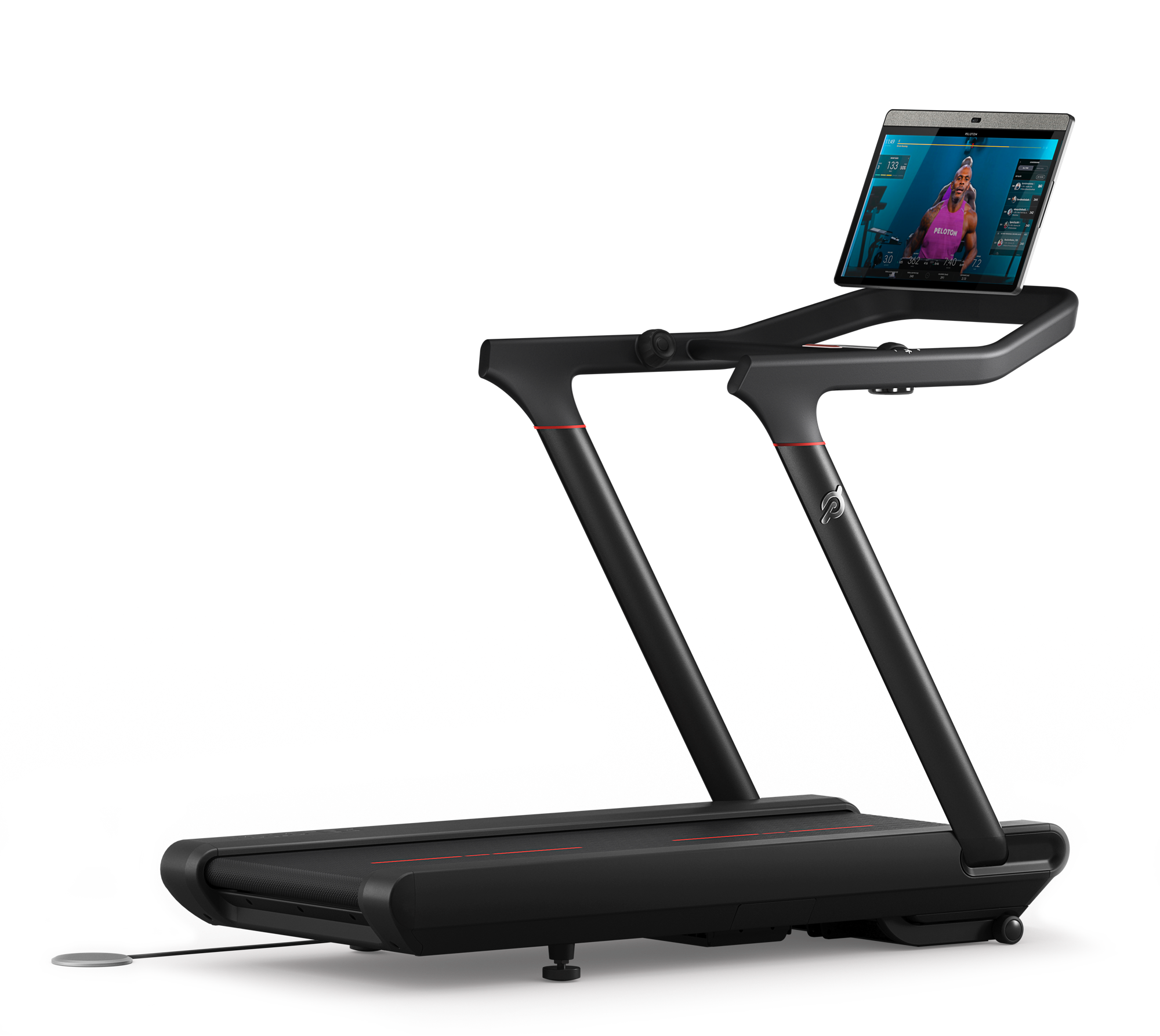
Roos Koole/Moment via Getty Images
Why Exercise Is So, So Good for Your Sleep
If you want to improve your sleep, focusing on your fitness can make a big difference.
By Anna Medaris•
How Does Exercise Improve Sleep?
How Does Workout Timing Impact Sleep?
How Does Type of Workout Affect Sleep?
How Much Exercise Do You Need for Improved Sleep?
The Takeaway
Whether you’re working out to train for a race, stave off chronic health issues down the line, or achieve another personal fitness goal, you have to be relatively patient to reap those rewards.
Discover more ways to reach your goals with Peloton
But while the long-term payoffs of a consistent fitness routine are significant and worthy, there’s at least one serious perk of exercise you can appreciate right away: better sleep.
“You don’t have to wait years and years to get a benefit from exercise,” says Michael Stack, an exercise physiologist and president of the Physical Activity Alliance. “If you exercise today, all the research would suggest that you are going to sleep not only better, but you’re going to get to sleep faster and sleep deeper.”
But how does exercise improve sleep? It’s not just about being more tired, experts say. Here’s why exercise and better sleep go hand in hand, and how you can best structure your workouts if your priority is a great night’s sleep.
How Does Exercise Improve Sleep?
While most of us have slept heavily after a particularly tough daytime workout, the research exploring the link between exercise and better sleep is ongoing.
“It’s established that exercise is beneficial to a lot of aspects of sleep, but a lot of why is kind of speculative and has not been completely proven,” says Taylor Fein, a PhD candidate in the Biomedical and Integrative Physiology program at Pennsylvania State University, where she studies the interplay between sleep, exercise, and stress. Still, experts believe a few key things are going on.
It Boosts Sleep Drive
Perhaps the most obvious way exercise improves sleep is by helping tire you out and therefore boosting your “sleep drive.” Shelby Harris, PhD, a clinical psychologist who specializes in behavioral sleep medicine, explains it like this: “Sleep at night [is like] a battery that is recharging. You need to use the battery a bit during the day for it to recharge at night.”
On a chemical level, exercise prompts the buildup of adenosine, which is “the currency by which the brain measures time awake,” according to Yale Medicine. So the more mentally and physically active you are throughout the day, the more adenosine you accumulate, the higher your sleep drive, and the more likely you’ll be able to fall asleep at night.
It Supports the Circadian Rhythm
Research shows that exercise can help regulate your body's natural sleep-wake cycle, or circadian clock, and may even work as an intervention for circadian rhythm disorders. The time of day you exercise can affect how big of an impact your workout has on your body clock, adds Stack. “When exercise is done early to midday, we can better synchronize the clock to basically tell it to go to sleep any time we want,” he says.
It Helps with Temperature Regulation
When you exercise regularly—getting your heart rate and body temperature up—your body learns how to cool off effectively and efficiently. That’s helpful when it comes time for bed, Stack says. “Exercise essentially fine-tunes your body’s thermostat to do something good during exercise, and it starts to realize, ‘OK, I need to be able to fine tune my thermostat a little bit better for when I sleep.’”
That process of cooling off before bedtime also helps prompt the brain to release melatonin, a sleep-inducing hormone, Harris adds.
It Increases Parasympathetic Nervous System Activity
Pushing through a workout activates your sympathetic or “fight or flight” nervous system. But engaging that system regularly through exercise boosts the activity of the opposing system—the parasympathetic or “rest and digest” nervous system—at rest, Fein explains. “That’s going to decrease feelings of being keyed up and may decrease the time to fall asleep,” she says.
Indeed, one small study found that both resistance training and even simple stretching helped insomnia patients fall asleep more quickly than those who weren’t “treated” with exercise.
It Reduces Stress
Exercise is well-known to reduce stress—delivering feel-good endorphins, lowering your resting heart rate, and serving as an active meditation, according to the Mayo Clinic. “And when we are able to limit stress or manage it, that helps quiet the mind more and allows for better sleep,” Harris says. From a neurochemical standpoint, Stack adds, consistent exercise helps depress the stress hormone cortisol, contributing to a better snooze.
It Can Reduce Sleep Disorder Symptoms
For people with sleep apnea, which causes them to stop breathing throughout the night and disrupts sleep, exercise has been shown to improve markers like how much oxygen sleep apnea patients take in at night and how well they believe they slept. Similarly, research shows people with insomnia find they sleep better and feel more awake during the day if they’re regularly hitting the gym and engaging in mind-body practices like yoga regularly.
It Can Help You Push Through Energy Dips
If you hit an afternoon slump, going for a walk instead of taking a nap can help you perk up. That’s in part because physical activity increases your body’s oxygen levels and helps circulate mood- and energy-boosting hormones, per Harvard Health. In turn, you’ll be more likely to stay awake, build up your sleep drive, and have a better night of sleep ahead, Harris says.
While it might seem counterintuitive, Fein adds, working out even after a poor night of sleep can help counteract some of the negative effects of an insufficient doze. “Even if you’re tired, you should go for it—that is something a lot of studies have shown,” she says.
How Does Workout Timing Impact Sleep?
In general, experts agree that the best time to exercise is the time that works for you and you’ll stick to. That said, there is evidence that certain times are optimal (and less optimal) if your central goal is better sleep.
For example, Harris says exercising 4–6 hours before bed can help prompt the body to cool off right when it’s supposed to start winding down for rest. Morning exercise, ideally in natural light, is a good option too, Stack says. “That really acts as a way to set your biological clock to get you to go to sleep at the right time in the evening,” he says. “I don’t think people often connect doing something at 7 in the morning with how it’s going to influence them at 10 at night, but the way our biorhythms work, it really does.”
When it comes to what not to do, the research is mixed. One recent study of almost 15,000 regular exercisers found that working out within 4 hours of bedtime is associated with more difficulty falling asleep, less sleep overall, poorer sleep quality, and worse heart rate measures. And yet some past research has shown that high-intensity exercise 2–4 hours before bed didn’t disrupt sleep in healthy adults. (Intense exercise within an hour of bed was problematic though.)
“Scientists can’t really say whether or not it's harmful to exercise really late at night—it could be, it could not be, it could be dependent on the person,” Fein says. “So I think it’s best for an individual to know how their schedule works. If they can exercise more than four hours before bed, maybe they should. But if the only option is evening exercise, exercise is always better than no exercise.”
How Does Type of Workout Affect Sleep?
Most of the research on exercise’s impact on sleep involves aerobic exercise, but there’s no reason strength-based workouts wouldn’t have a similar effect, Stack says. “When you think of the mechanisms that [make exercise improve sleep] like temperature regulation, those neurochemical changes, the biorhythms, and the adenosine, all of those benefits are going to accrue from both aerobic or resistance exercise,” he says. “So I think it’s safe to assume that what your preference is will support your sleep.”
Mind-body exercises like tai chi and yoga can be beneficial too, especially if racing thoughts or other anxieties tend to keep you awake. One national, highly-cited (though a bit outdated) survey showed that 55 percent of yoga practitioners said the practice improved their sleep. A more recent study looking at tai chi among older adults found that those who tried the practice for 60 minutes three times a week significantly improved their sleep time, including time in deep sleep.
Such practices “are great options because they seem to work on some of the specific nervous system mechanisms that would result in better sleep,” Stack says.
A bonus when it comes to mind-body exercises: Unlike high-intensity workouts, you don’t have to worry about the moves not being calm enough before bed. Harvard Health even recommends doing a series of yoga poses right before bed to relieve stress and tension.
Wind Down with an Evening Stretch or Yoga Class on the Peloton App
How Much Exercise Do You Need for Improved Sleep?
Exercise scientists haven’t established an optimal “dose” of exercise for better sleep. But aiming for the Center for Disease Control and Prevention’s guidelines for physical activity—150 minutes of moderate physical activity or 75 minutes of vigorous activity a week—is a safe bet, Fein says.
If you can’t hit that level of activity, that’s OK; getting some movement in is better than none, according to Fein. But do try to avoid very low and very high levels of physical activity, as research shows that both can be harmful to your sleep. “There’s a fine line between too little and too much exercise when it comes to sleep,” Harris says. “I work with people who sometimes work out too much, and overtraining or training too close to bed can really negatively impact nighttime sleep. Finding the right balance is key.”
The Takeaway
Exercise can improve how quickly you fall asleep, how soundly you sleep, and how long you sleep for many reasons. To name a few, it helps your body learn to cool off and release melatonin at night; it helps you manage stress and anxiety that otherwise might keep you awake; and it builds up the chemical adenosine, which tells your body it needs rest.
The “best” time to exercise for better sleep isn’t entirely conclusive, but morning exercise in the sunlight is particularly good to help set your circadian clock—thus improving sleep—for the day. Though the research is mixed, avoiding intense exercise a few hours before bed might help you sleep. You’re encouraged, however, to engage in mind-body exercises like yoga as close to bedtime as you’d like.
Maintaining an exercise routine can prime your body for great sleep, but even a single workout today is likely to lead to benefits tonight. “The benefits you get from exercise extend far beyond a lot of the traditional health benefits we think of like improving blood pressure, preventing heart attacks, and reducing mortality,” Stack says. “You get to sleep better tonight and then tomorrow you're going to be more productive and happier, so it becomes a really virtuous cycle.”

Peloton App
Access thousands of classes with no equipment needed.
This content is for informational and educational purposes only and does not constitute individualized advice. It is not intended to replace professional medical evaluation, diagnosis, or treatment. Seek the advice of your physician for questions you may have regarding your health or a medical condition. If you are having a medical emergency, call your physician or 911 immediately.
Our Products
Level up your inbox.
Subscribe for a weekly dose of fitness, plus the latest promos, launches, and events.
By providing your email address, you agree to receive marketing communications from Peloton.
For more about how we use your information, see our Privacy Policy.



















